Board of Directors
The Board of Directors is responsible for the overall management and strategic direction of the Alpiq Group as well as for supervising the Executive Board. The Board of Directors consists of the following ten members:

Jens Alder
Chairman
Nationality:
Swiss
Education:
- MBA INSEAD Fontainebleau
- Msc Electrical Engineering ETH Zurich
Professional background:
Since 2009, various mandates on the Board of Directors, including Swiss Steel Holding Ltd./Lucerne (Chairman), CA Inc./USA, Sanitas Krankenversicherungen/Zurich (Chairman), BG Ingénieurs Conseils/Lausanne (Chairman), Industrielle Werke Basel (Chairman), RTX Telecom/Denmark (Chairman), AG für die Neue Zürcher Zeitung/Zurich
2006 – 2008: CEO TDC A/S Denmark
1999 – 2006: CEO Swisscom
1998 – 1999: Swisscom
1993 – 1998: Alcatel
1991 – 1993: Motor-Columbus
1982 – 1991: Alcatel
Other mandates:
Director: Goldbach Group Ltd, Küsnacht; Scope Content AG, Zurich
Chairman of the Supervisory Board: ColVisTec AG, Berlin, Germany
First elected to the Board of Directors:
2015
Specific role on the Board of Directors:
Chairman of the Strategy Committee
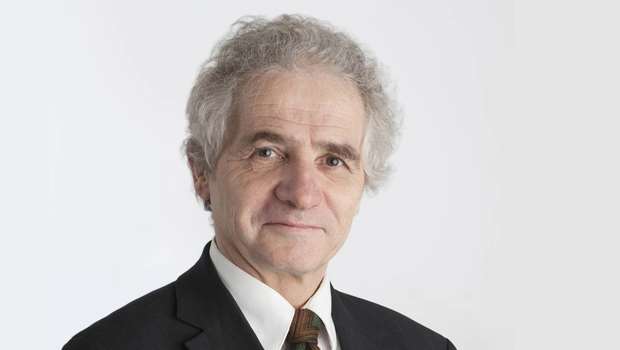
Jean-Yves Pidoux
Deputy Chairman, Lead Director of the Governance Committee
Nationality:
Swiss
Education:
Doctorate in Sociology and Anthropology
Professional background:
Lausanne City Councillor, Municipal Utilities Director
Other mandates:
Chairman: AGEPP Ltd, Lavey-Morcles; Boisy TV S.A., Lausanne; LFO SA, Lausanne; SI-REN SA, Lausanne
Director: Romande Energie Holding SA, Morges; CADOUEST SA, Prilly; EOS Holding SA, Lausanne; Forces motrices de l'Aboyeu SA, Collonges; Gaznat SA, Lausanne; Petrosvibri S.A., Vevey; Transports Publics de la Région Lausannoise sa, Renens; EPURA SA, Lausanne; Etablissement cantonal contre l'incendie et les éléments naturels du Canton de Vaud (ECA), Pully
First elected to the Board of Directors:
2009
Specific roles on the Board of Directors:
- Lead Director of the Governance Committee
- Member of the Strategy Committee
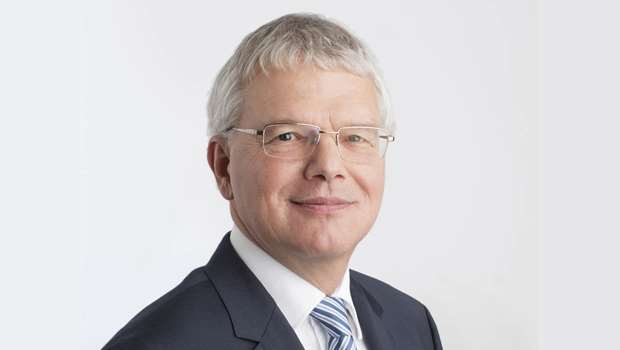
Conrad Ammann
Director
Nationality:
Swiss
Education:
- Dipl. El. Ing. ETH Zurich, Dr. sc. techn.
- BWI postgraduate diploma in industrial management, ETH Zurich
Professional background:
CEO of Primeo Energie Ltd, Münchenstein
Other mandates:
Chairman: aventron Holding AG, Münchenstein; Primeo Energie Ltd, Münchenstein
Director: Kraftwerk Birsfelden AG, Birsfelden
Board member: Handelskammer beider Basel (Basel Chamber of Commerce)
First elected to the Board of Directors:
2012
Specific roles on the Board of Directors:
- Member of the Governance Committee
- Member of the Strategy Committee
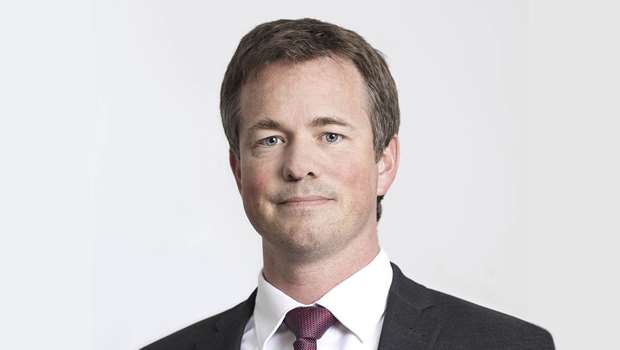
Tobias Andrist
Director
Nationality:
Swiss
Education:
- Master of Business Administration, Edinburgh Business School
- Business Economist, University of Applied Sciences & Arts Northwestern Switzerland
- Certified Electrician (Federal Diploma)
Professional background:
Since 2019: CEO EBLD Schweiz Strom GmbH, Rheinfelden, Germany
Since 2018: CEO EBL (Genossenschaft Elektra Baselland), Liestal
2012 – 2018: Member of the Executive Board, Head of Electricity Division – EBL
2009 – 2012: Head of Corporate Development – EBL
2006 – 2009: Executive Assistant – IWB Industrielle Werke Basel
2004 – 2006: Project Assistant / Management Support – Baloise Asset Management AG
Other mandates:
Chairman: EBL España Services SI, Calasparra, Spain; EBL Telecom AG, Liestal; EBL Wind Invest AG, Liestal; EBLS Schweiz Strom AG, Liestal; Tubo Sol PE2 S.L., Calasparra, Spain
Director: EBL Fernwärme AG, Liestal; Kraftwerk Birsfelden AG, Birsfelden
Board member: Energie Zukunft Schweiz Association, Basel
Employer representative: Transparenta Sammelstiftung für berufliche Vorsorge, Aesch
Council member: KMU Forum Baselland
First elected to the Board of Directors:
2018
Specific role on the Board of Directors:
Member of the Audit and Risk Committee
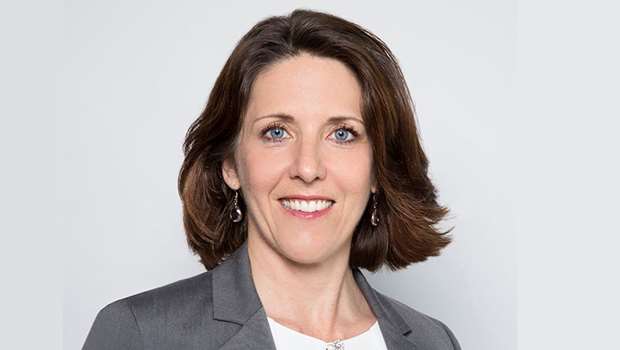
Aline Isoz
Director
Nationality:
Swiss
Education:
- Various training courses: Finance I, Fundamentals of the Board of Directors and the Added Value of the Board of Directors, Académie des administrateurs Sàrl (ACAD), Geneva; Specialization in Ethics and Artificial Intelligence, Coursera
- Bachelor in Communication, Marketing and Public Relations, Polycom Lausanne (SAWI)
Professional background:
2019 – 2020: Head of Strategy and Digital Transformation, MAZARS Ltd, Vernier/Lausanne
2010 – 2019: Founder and Manager, consulting firm for Digital Business Transformation, Blackswan Sàrl, Cossonay
2008 – 2010: Creative Director, then Head of Digital Strategy at a communications agency, Agence Trio SA, Lausanne, and Creatives SA, Vevey
2001 – 2008: Independent communication officer
Other mandates:
Director: SIG, Geneva; vo énergies holdings SA, Vallorbe
Foundation council member: Swiss Paraplegics Foundation, Nottwil
First elected to the Board of Directors:
2020
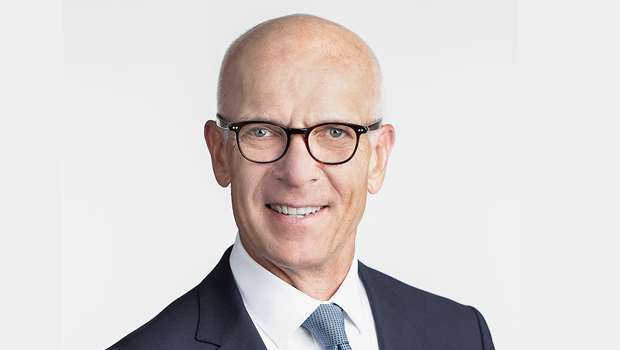
Jørgen Kildahl
Director
Nationality:
Norwegian
Education:
- Advanced Management Program, Harvard Business School
- Master of Business Administration in Finance (MBA), Norwegian School of Economics and Business Administration, NHH
- Certified European Financial Analyst (CEFA)
- Master of Science in Economics and Business Administration (M.Sc.), Norwegian School of Economics and Business Administration, NHH
Professional background:
Since 2016: Senior Advisor, Energy Infrastructure Partners AG (formerly Credit Suisse Energy Infrastructure Partners AG)
2010 – 2015: Board of Management Member, E.ON SE
1999 – 2010: Executive Vice President, Statkraft AS
1991 – 1999: Partner, Geelmuyden Kiese, PR Consulting Group
1988 – 1991: Fund Manager, International Formuesforvaltning A/S
Other mandates:
Vice-Chairman: Telenor ASA, Norway
Director: Höegh LNG Holdings Ltd., Bermuda; Ørsted A/S, Denmark
First elected to the Board of Directors:
2019
Specific roles on the Board of Directors:
- Member of the Governance Committee
- Member of the Strategy Committee

Alexander Kummer-Grämiger
Director
Nationality:
Swiss
Education:
- Lic. iur. et oec. HSG, Lawyer and Notary
- Business arbitrator IRP – HSG
Professional background:
Various mandates on Boards of Directors and Boards of Trustees
Other mandates:
Chairman: Aluminium-Laufen Ltd Liesberg, Liesberg; EBM (Genossenschaft Elektra Birseck), Münchenstein; GREBET Immobilien AG, Bettlach; Gremolith Verwaltungs AG, Kirchberg; Sportshop Karrer AG, Laufen; Fridolin Karrer Immobilien AG, Laufen; EGK Grundversicherungen AG, Laufen; EGK Privatversicherungen AG, Laufen
Director: Duravit Schweiz AG, Othmarsingen
First elected to the Board of Directors:
2013

Wolfgang Martz
Director
Nationality:
Swiss
Education:
- Postgraduate studies in Management, Marketing and Business Management: IMD Business School Lausanne, INSEAD Fontainebleau, London Business School
- Degree in Agronomic Engineering, ETH Zurich
Professional background:
Since 2005: Independent director and freelance consultant
1989 – 2005: CEO of Groupe Minoteries SA, Geneva
1985 – 1989: Associate Partner at an international consulting firm specialising in management and rural development
Other mandates:
Chairman: Schenk Holding SA, Rolle; SOCIM Société Coopérative Immobilière Montreux (SOCIM), Montreux; SOKAVO SA, Vevey
Chairman: Caisse de pension de Schenk Holding SA, Rolle; Caisse de pension de Schenk SA, Rolle
First elected to the Board of Directors:
2016
Specific role on the Board of Directors:
Chairman of the Nomination & Remuneration Committee
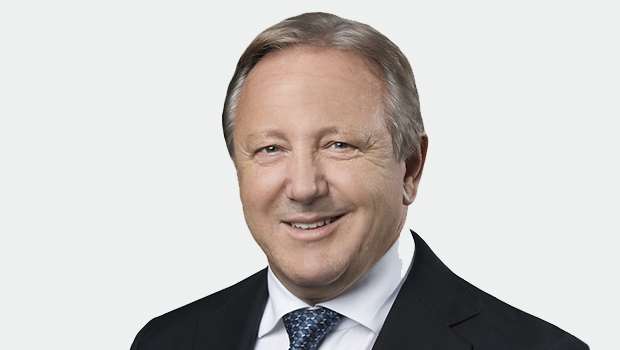
Hans Ulrich Meister
Director
Nationality:
Swiss
Education:
- Advanced Management Program, Harvard Business School
- Advanced Management Program, Wharton School
- Degree in Economics and Business Administration, University of Applied Sciences Zurich
Professional background:
2008 – 2015: Member of the Executive Board at Credit Suisse Group AG and Credit Suisse AG, including:
- 2012 – 2015: Head of the Private Banking & Wealth Management Division, responsible for the Private Banking for the EMEA and Asia Pacific regions
- 2011 – 2012: CEO of the Private Banking Division
- 2008 – 2015: CEO of Credit Suisse (Switzerland)
2005 – 2007: Head of Private and Corporate Clients at UBS
2004 – 2007: Member of the Managing Board of UBS Group
2003 – 2004: Head of Large Corporates & Multinationals at UBS
2002: UBS Wealth Management, New York
Other mandates:
Chairman: Implenia Ltd, Dietlikon
Director: Ina Invest Holding Ltd, Zurich
First elected to the Board of Directors:
2019
Specific role on the Board of Directors:
Chairman of the Audit and Risk Committee
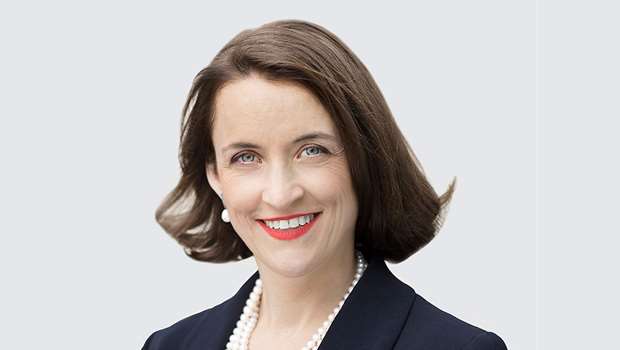
Phyllis Scholl
Director
Nationality:
Swiss
Education:
- Advanced Management Program HSG
- Admitted to the Bar
- London School of Economics, LL.M
- Universität St. Gallen, lic. iur. (Master of Laws)
- Universität St. Gallen, lic. rer. publ. (Master of Public Affairs)
Professional background:
Since 2018: Partner, Baryon AG
2013 – 2018: Partner, Bär & Karrer AG
2007 – 2012: Associate, Bär & Karrer AG
2004 – 2007: Legal staff, Bär & Karrer AG
Other mandates:
Chairman: Lazzarini Beteiligungs AG, Chur
Director: Energiedienst Holding AG, Laufenburg; EW Höfe AG, Freienbach; Baryon AG, Zürich
First elected to the Board of Directors:
2019
Specific role on the Board of Directors:
Member of the Nomination & Remuneration Committee
The Board of Directors regularly reviews its composition in relation to a balance of specialist knowledge, experience and diversity. At 31 December 2020, the Board of Directors has two female members.
Internal organisation
Allocation of tasks within the Board of Directors
The tasks of the Board of Directors are set out in the Swiss Code of Obligations, in Art. 12 of the Articles of Association as well as in the Organisational Regulations of Alpiq Holding Ltd.
Committees of the Board of Directors
Audit and Risk Committee (ARC)
The ARC consists exclusively of non-executive and independent members of the Board of Directors, most of whom have finance and accounting experience. At 31 December 2020, the ARC consists of Hans Ulrich Meister (Chairman) and Tobias Andrist (member). The ARC’s role is to support the Board of Directors in assessing the performance of the external auditors, monitoring and assessing the internal auditors, the internal control system, financial accounting, risk management, compliance and corporate governance.
Nomination and Remuneration Committee (NRC)
At 31 December 2020, the NRC consists of Wolfgang Martz (Chairman) and Phyllis Scholl (member). The NRC’s task consists in supporting the Board of Directors in discharging its supervisory duty regarding succession planning (Board of Directors and Executive Board), determining and reviewing remuneration policy and guidelines as well as performance targets, preparing proposals on the remuneration of the Board of Directors and the Executive Board on behalf of the Annual General Meeting, determining all other terms and conditions of employment of the members of the Board of Directors and approving the other contract terms and conditions of employment for the CEO (as proposed by the Chairman of the Board of Directors) and for the Executive Board (as proposed by the CEO).
Strategic Committee (SC)
The SC’s tasks mainly include the preliminary treatment of motions of a strategic nature, strategy development and monitoring the implementation of strategic projects. At 31 December 2020, the SC consists of Jens Alder (Chairman), Dr. Conrad Ammann (member), Jørgen Kildahl (member) and Dr. Jean-Yves Pidoux (member).
Governance Committee (GC)
The GC was created by resolution of the Board of Directors dated 7 December 2018. The GC serves as a supervisory body and aims to avoid potential conflicts of interest with regard to the dual role of the Chairman of the Board of Directors / Delegate of the Board of Directors. For example, it conducts preliminary treatment of the Board motions that are not covered by another committee and discusses the Board of Directors’ agenda in advance. At 31 December 2020, the GC consists of Dr. Jean-Yves Pidoux (Chairman / Lead Director), Dr. Conrad Ammann (member) and Jørgen Kildahl (member). Jens Alder’s dual role as Delegate and Chairman of the Board of Directors no longer applies following the election of Antje Kanngiesser as CEO of the Alpiq Group at 1 March 2021. As a consequence of this, the GC will become obsolete at that point in time.
All committees can investigate and enquire about activities that fall within their area of responsibility and can request any information required to fulfil their duties.
Sustainability
Economic, environmental and social issues as well as decisions regarding sustainability are handled by the Board of Directors, as the body responsible for the overall management. In addition to this, they are dealt with by the committees supporting the Board of Directors, in particular the ARC (economic and environmental issues) and the NRC (social issues).
Division of responsibilities
The Board of Directors has delegated responsibility for the Alpiq Group’s entire operational management to the CEO. The CEO chairs the Executive Board, and has delegated some of his management responsibilities to the Executive Board members. The Organisational Regulations and the Executive Board Regulations govern authorities and the division of responsibilities between the Board of Directors and the CEO or Executive Board. As part of the Group Guidelines, the CEO has issued regulations governing the assignment of authorities and responsibilities. These regulations apply throughout the Group.
Information and controlling instruments in relation to the Executive Board
The Executive Board reports annually to the Board of Directors on strategic, medium-term and annual targets and on the progress made in attaining them. The Board of Directors issues a code of conduct to ensure compliance with the applicable norms. During the financial year, the Executive Board reports quarterly on business performance, progress in achieving targets and other important developments (activity report). The Board of Directors also receives a regular summary report including key financial figures (Alpiq Group short-form report), an assessment of the risk situation and ongoing internal audits. Furthermore, the Board of Directors receives a written quarterly report showing detailed financial information and the principal activities and projects of the various business and functional divisions. At 31 December 2020, the Board of Directors also has four standing committees: the Audit and Risk Committee (ARC), the Nomination and Remuneration Committee (NRC), the Strategic Committee (SC) and the Governance Committee (GC).
The external auditors submit a comprehensive report to the Board of Directors and give a verbal presentation of the results and findings of their audit and of their future key audit areas.
Internal Audit, which reports directly to the Chairman of the Board of Directors and the ARC, provides independent and objective auditing and advisory services aimed at adding value and improving business processes. It supports the organisation in achieving its objectives by using a systematic and targeted approach to evaluate the effectiveness of risk management, internal control systems as well as the management and supervisory processes, and by helping to improve them. Internal Audit is a management tool for the Board of Directors and its committees, in particular for the ARC. Internal Audit is intended to assist the Board of Directors and Executive Board in performing their monitoring and controlling functions. At the ARC’s request, the Board of Directors approves the risk-oriented audit schedule of Internal Audit on an annual basis and acknowledges the annual accountability report. The individual audit reports are submitted to the respective line manager, the Chairman and (in summary form) to the ARC, and are tabled for discussion at each meeting. As and when necessary, Internal Audit also engages an external co-sourcing audit partner to assist it with its work. As Internal Audit uses the partial outsourcing model, the overall responsibility and accountability for assurance services of Internal Audit lie with the Head of Internal Audit, while the operational implementation is primarily performed by an external service partner.
Risk Management monitors strategic and operational risks, particularly market, credit and liquidity risks. The Board of Directors receives an annual written report on the situation and developments in Group-wide risk management and its most important constituents. The report presents principles and limits, details compliance with them and contains information on planned expansion moves. Central Risk Management reports to the Executive Chairman and proposes limits for the individual areas based on the results of analyses. The Executive Board is responsible for assigning the related risk categories. The overall limit for the Alpiq Group is set annually by the Board of Directors. The Risk Management Committee (RMC), a subcommittee of the Executive Board, monitors compliance with the limits and principles of risk management.
Compliance is integrated into the Legal & Compliance functional unit and reports directly to the Chairman of the Board of Directors. In addition to the actual compliance programme and measures to prevent breaches of ethical regulations and norms, Alpiq’s compliance management system comprises aspects of corporate culture as well as constant monitoring and improvement of the Compliance Organisation. Compliance carries out consulting assignments of the Chairman of the Board of Directors, the Executive Board or the ARC, conducts internal investigations and oversees the compliance reporting office as well as Group-wide directives. Moreover, Compliance maintains the transnational partner network for compliance and data protection.
The annual compliance risk analysis was also carried out in the reporting year. With regard to training, two Group-wide e-learning modules on GDPR and Alpiq’s code of conduct were completed by all employees in the reporting year. In addition, specific training events for trading were held in particular. A digital platform was introduced for the compliance reporting office, which also enables employees to more easily report cases anonymously. Various internal investigations were conducted in the reporting year. In four cases, the identified violations of internal regulations contained in the code of conduct led to the termination of the employment contract. Lastly, all of Alpiq’s efforts in Compliance's Know Your Customer (KYC) area were centralised, amended and professionalised. This laid the foundation for an effective and up-to-date counterparty review.